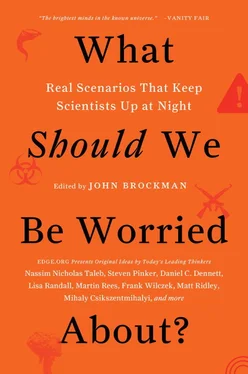As I enter the courtyard of the British Library, I pass under the long shadow cast by the bronze colossus of Newton. With measuring-compass in hand, he is fathoming the deepest laws of the universe. But the baleful inspiration for this monument dismays me. For he is the Newton of William Blake’s famous print, depicting all that the artist abhorred in his construal of Newtonian science—desiccated rationality, soulless materialism. With thoughts of Blake, the tiger and its “fearful symmetry” come to mind. And the phrase suddenly brings into sharp perspective a nagging worry that I had not articulated. I finally pinpoint what it is that so dismays me about the dismissive views of science that I regularly encounter. It is their fearful a symmetry—the discrepancy between the objective status of the science and its denigration by a clamorous crowd of latter-day Blakes.
If you work on the science of human nature—in particular, sex differences—that asymmetry will be all too familiar. There is a vocal constituency of educated people—some of them scientists, even biologists; social scientists; public intellectuals; journalists—people who respect science, biology, even human biology, and who, at least ostensibly, take Darwinism to be true for all living things… as long as it doesn’t venture into our evolved human nature.
To understand the resulting asymmetry and how worrying it is, consider first a crucial distinction between two worlds.
One is the world of the objective content of ideas—in particular, of science as a body of knowledge, of actual and possible scientific theories, their truth or falsity, their refutability, tests passed or failed, valid and invalid arguments, objections met or unanswered, crucial evidence deployed, progress achieved. Darwinian science has high status in this world of objective knowledge as perhaps (in Daniel Dennett’s words) “the single best idea anyone has ever had.” What’s more, probably uniquely in the history of science, it is unlikely to be superseded; biology will be forever Darwinian—for natural selection, it seems, is the only mechanism that can achieve design without a designer. And the Darwinian understanding of human nature is a straightforward implication of that core insight. A remarkable feat: the first serious attempt at a science of ourselves… and it’s most likely right.
The other world is the subjective one of mental states, the personal and the social: thoughts, beliefs, perceptions, feelings, emotions, hopes, ambitions.
Armed with this distinction, we can pin down exactly what the asymmetry is and why it is so worrying.
Generally, the public reception of a scientific theory concurs by and large with the judgment of the objective world of ideas. Not, however, in the case of the scientific understanding of our evolved human nature and, above all, male and female natures. If the arguments against the evolutionary science of human nature were conducted in the world of the objective content of ideas, there would be no contest; evolutionary theory would win hands down. But as a sociological fact in the public marketplace, it loses disastrously to its vociferous critics.
How? Because, in such encounters, the objective relationship between the science and these criticisms is turned on its head; all the fundamental asymmetries are systematically reversed.
First, the “burden of proof,” the burden of argument, is transferred from the criticisms onto the science; it is Darwinism that’s on trial. Meanwhile, anti–Darwinian attitudes don’t have to defend themselves—they are accepted uncritically, with eager credulity and indulgent suspension of disbelief.
Second, adding insult to injury, a plethora of homemade alternatives is conjured up to fill the gap where the real science should be. What does this DIY science look like? Pseudo-methodological denunciations, where even name-calling passes for argument—essentialist, reductivist, teleological, Panglossian, determinist (all very bad) and politically incorrect (very bad indeed); the immutable “entanglement” of nature and nurture, which renders nature impenetrable, thereby freeing “pure nurture” to be discussed at length. A cavalier disregard for hard-won empirical evidence—apart from scans of brains lighting up. The magical potency of “stereotyping” (bad) and “role models” (good). A logic-defying power to work miracles on tabula rasa psychologies, as in “socialization” (bad—a noxious source of male/female differences) and “empowerment” (good); made-up mechanisms—multitasking, self-esteem. Complaints about evolutionary science being “controversial,” which is false scientifically, though (sadly) true sociologically, because they are raising the dust and then complaining that they can’t see. The science-free policy that this agenda generates is epitomized by the “women in science” lobby, which is posited on a “bias and barriers” assumption and an outright rejection of, yes, the science of sex differences.
Third, there is the impact that these meretricious views make in the public realm. They are not perceived as mere opinion. And, both psychologically and sociologically, they have a voice far more influential and persuasive than their objective status warrants. Meanwhile, it is the science that is seen as tendentious and is routinely misconstrued, maligned, and dismissed.
It seems, then, that the perspective of the two worlds reveals a bleak picture of the present. But it also reveals a far more promising vista. Understanding the distinction between the autonomous objectivity of the world of ideas and the contrasting status of the psychological and social helps us appreciate the true value of science, its progressive trajectory and its unique and enduring power. And with that in mind, I feel less worried about those fearful asymmetries.
DAN SPERBER
Social & cognitive scientist, Central European University, Budapest, & Institut Jean Nicod, Paris; coauthor (with Deirdre Wilson), Meaning and Relevance
Worrying is an investment of cognitive resources laced with emotions from the anxiety spectrum and aimed at solving some specific problem. It has its costs and benefits, and so does not worrying. Worrying for a few minutes about what to serve for dinner in order please one’s guests may be a sound investment of resources. Worrying about what will happen to your soul after death is a total waste. Human ancestors and other animals with foresight may have worried only about genuine and pressing problems, such as not finding food, or being eaten. Ever since, they have become much more imaginative and have fed their imagination with rich cultural inputs; that is, for at least 40,000 years—possibly much longer—humans have also worried about improving their lot individually and collectively (sensible worries) and about the evil eye, the displeasure of dead ancestors, the purity of their blood (misplaced worries).
A new kind of misplaced worries is likely to become more and more common. The ever accelerating current scientific and technological revolution results in a flow of problems and opportunities presenting unprecedented cognitive and decisional challenges. Our ability to anticipate these problems and opportunities is swamped by their number, novelty, speed of arrival, and complexity.
Every day, for instance, we have reasons to rejoice in the new opportunities afforded by the Internet. The worry of fifteen years ago—that it would create yet another major social divide, between those with access to the Internet and those without—is so last century! Actually, no technology in human history has ever spread so far, so fast, so deep. But what about the worry that by making detailed information about every user available to companies, agencies, and governments the Internet destroys privacy and threatens freedom in much subtler ways than Orwell’s Big Brother? Is this what we should worry about? Or should we focus on making sure that as much information as possible is freely accessible as widely as possible, forsaking old ideas of secrecy, and even privacy, and trusting that genuine information will overcome misinformation and that well-informed people will be less vulnerable to manipulation and control—in other words, that with much freer access to information a more radical kind of democracy is becoming possible?
Читать дальше












